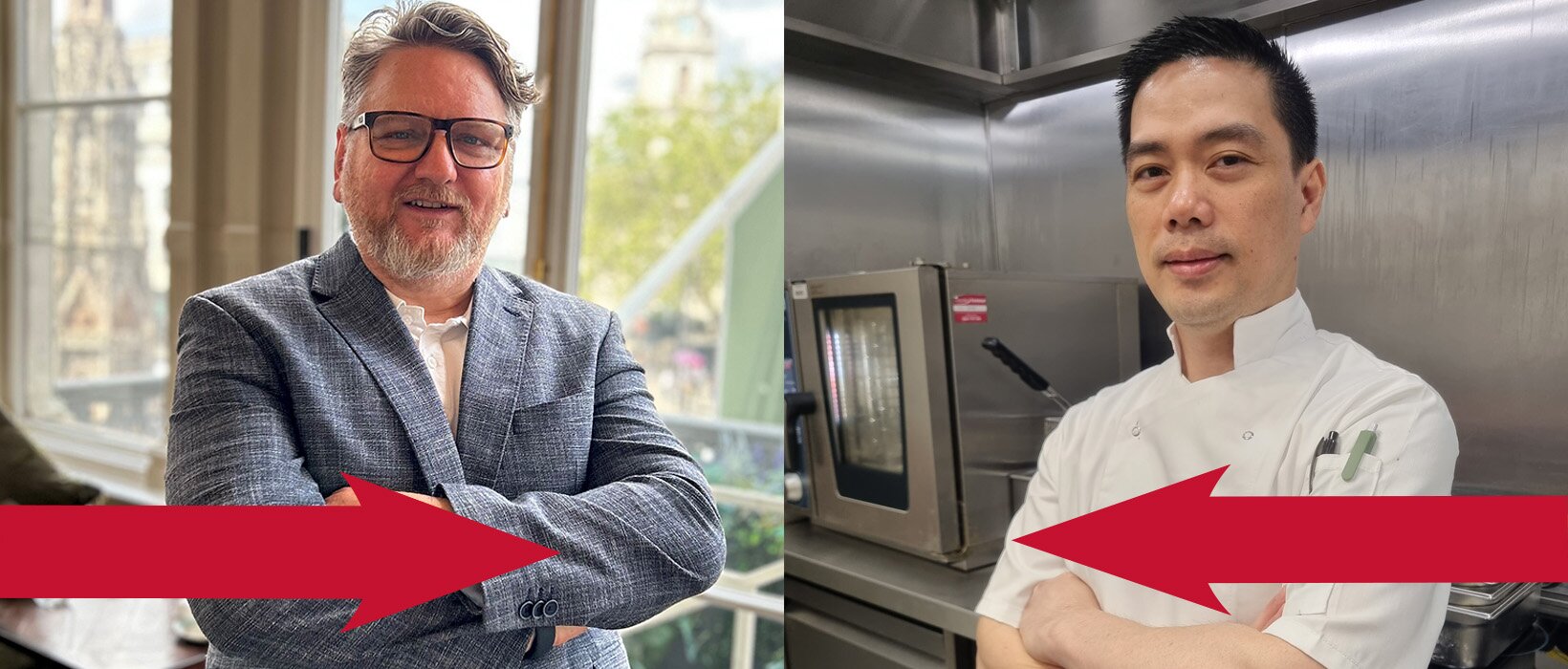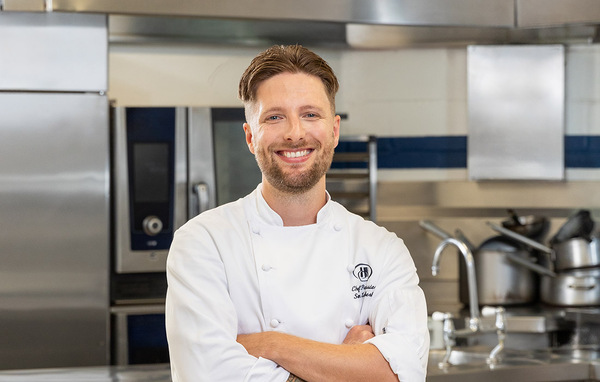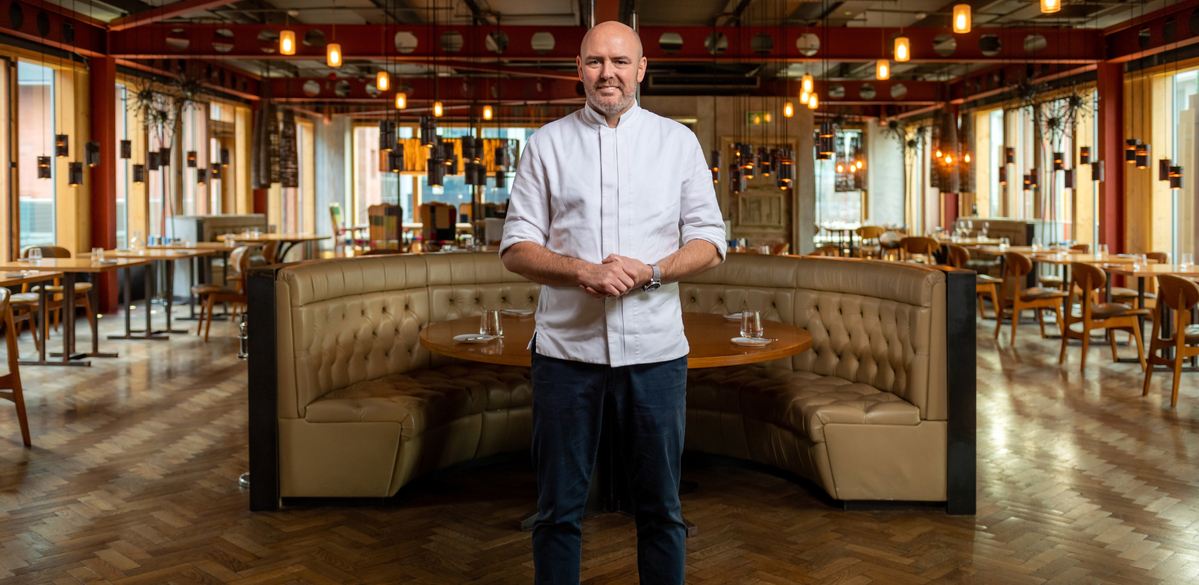Knowledge exchange: ‘We as employers need to be smart about how we treat our teams’
Offering consistent training keeps everyone interested, agree these two Clermont colleagues
Leigh Stark, group development chef, Clermont Hotel Group
How did you get into the industry?
When I was at school my ambition was art and design. Due to unforeseen circumstances I had to choose a different path but, fortunately for me, my uncle was a hotelier, owning a property in Southampton. My father and uncle sat me down and planted the seed of going to college and training to become a chef. Good food was always a part of my family life, and I knew even then that cooking could be a creative outlet, so I went off to Southampton Technical College.
What’s the best part of your job?
Working with people. My role involves developing the menus and supporting 16 London hotels, and I really enjoy my weekly visits to the restaurants and kitchens. I count myself fortunate enough to see the new generation of chefs and front of house teams finding their feet in our industry.
What advice would you share with those early in their careers?
Listen and learn. Ask questions when you’re not sure of the task or process, and be proactive in supporting your colleagues.
Who has been your best mentor and why?
After I had been in my first job – a commis chef at Lainston House hotel in Winchester – for two years, Richard Fanon, the general manager, encouraged me to think about moving to London. He was going to the Savoy hotel for a lunch at Aton Edelman’s chef’s table and he asked me to update my CV. He took it with him, and I started in the Savoy kitchen three weeks later. Its kitchen was a melting pot of hospitality leaders and I had a great time there and learned so many valuable skills.
What have you learned from younger colleagues?
It’s given me an insight into how the industry attracts, develops, and retains new, younger staff. We as employers need to be smart about how we treat our teams. Social media plays a key part in where younger colleagues want to work, so digital training options are hugely important, on top of fair wages and a work-life balance. Younger staff move quickly to new roles and know what they expect from an employer, which is why it’s more important than ever that we’re investing in our training programmes.
Lito Mendoza, Sous chef, Clermont Hotel Group
How long have you worked in hospitality?
I have been working since 2006 – almost 17 years.
How did you get into the industry?
When I first arrived in the UK, I was interested in developing my skills as a chef so I got a job as a commis chef in Park Tower Casino Knightsbridge in 2009 with my head chef, Leigh Stark.
What’s the best part of your job?
It has to be the learning opportunities. Every day, I am continuously discovering new skills and knowledge, and improving my craft. At Clermont Hotel Group in particular, we learn on the job but also through the Academy. Sharing the skills with my colleagues who became my treasured friends is also one of the satisfactions at work. Seeing our customers leave the restaurant with a smile and receiving positive feedback is also hugely rewarding and gives me a sense of accomplishment.
Have you had a formal mentor and how has this benefited your progression?
I am proud to say my head chef [Stark] became my best mentor in the hospitality industry. I’ve worked with him since 2009 in various roles, and most currently at the Clermont, Victoria, where I have been since 2021. He saw my potential, and didn’t think twice to share his knowledge. I completed my NVQ Level 2 Diploma in Professional Cookery in April 2011 and Senior Production Chef Level 3 in September 2019.
Stark has made a huge difference in my career. With his unending support, advice and encouragement, he brought out the best in me both in this field and as a person. He supported me without hesitation, from my humble beginning as a commis chef to a sous chef in one of the best hotels in London.
What do you think working with a diverse age-range of people brings to your workplace?
Everyone is welcome with their fresh ideas. Being a chef requires continuous learning, combining your skills and thoughts from different age ranges will definitely generate outstanding results. Meeting people from different walks of life is like mixing ingredients in a dish, it is the variety that makes a dish special and unique.

















